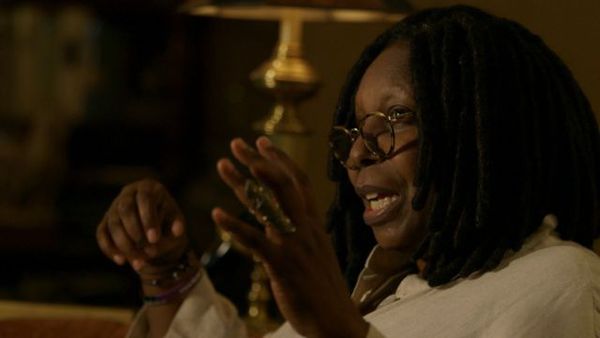Eye For Film >> Movies >> Misery Loves Comedy (2015) Film Review
Misery Loves Comedy
Reviewed by: Luke Shaw

What kind of aberrant psychology convinces a person that the best use of their time is getting up on stage and making themselves the centre of the universe? Kevin Pollack explores the peculiar strain of narcissism that it takes to make a comedian in Misery Loves comedy. The unifying theme here is that everyone who gets into comedy has something wrong with them, but as Penn Jillette astutely states, everyone in the world has something wrong with them, but showbusiness is literally the business of showing emotion.
There’s nothing particularly unheard of on show here, and it’s well trodden ground, but every documentary lives or dies on its talking heads, and when you’ve got a boat load of funny people in the wings waiting to drop anecdotes and observations, then there’s already a certain level of entertainment you’re guaranteed to get. And let’s not lie, comedians are absorbing people, Pollack asks them about why, and how, a comedian chooses to function as they do. The consensus is that it’s a desire for control, and the drug like high that being able to control people’s laughter provides. Tom Hanks candidly refers to the sensation as analogous to crack cocaine or crystal meth, and he isn’t the only one that highlights the narcotic effect.

Other ruminations focus on the so called “look at me” disease, and the different types of laugh and what they achieve. Steve Coogan identifies the best kind of laughter as that of recognition, when you’ve uncovered something that is almost universally relatable, like Maria Bamford realising that she’s not the only person to have unwittingly caused the death of a beloved pet. As per the documentary title, feelings and depression are explored, with the sad clown motif being touched upon. It’s an old idea and explored without any real sense of revelation here, but it would seem trite to treat that as a negative as it’s an observation that’s as old as the business itself.
Some particular highlights include stories of how these professional gag tellers eventually got into the business of telling jokes. especially Judd Apatow’s story of hustling his way into interviewing his idols which opened up a world of networking to him, providing what he calls his college level education, and giving him the tools to create films. Beyond this, the mix of traditional comedians, actors such as Hanks and Sam Rockwell, and family members of icons (Freddy Prinze Jr. and Kelly Carlin-McCall feature heavily) mean that there’s plenty of variety to the points of view on offer. Oh, and keep an eye out for Christopher Guest’s special talent.
A tighter focus on the misery that drives people may have made this a more indispensable glance at the industry, but for anyone with a love of comedy, it’s sure to harbour a few gems. Oddly for a documentary of its type, the most pertinent observation comes from behind the camera, when Pollack likens comedians to war veterans. Not those in the foxholes and trenches, but snipers, solitary and bare to the elements, each with stories of memorable hits and misses.
Reviewed on: 23 Jun 2015
















